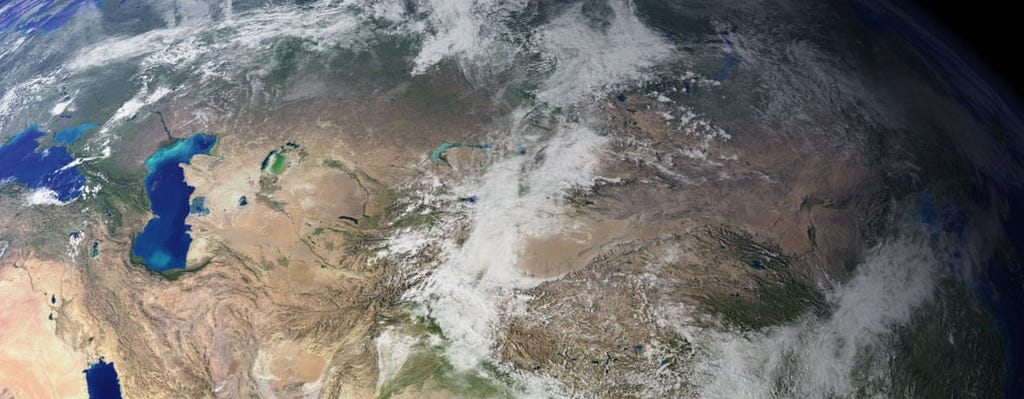AMA #10 — SEA Ecosystem
AMA #10 — SEA Ecosystem

This week on our livestream series, the SEA team will be talking about our product ecosystem — the SEA network. This encompasses our apps, our token, our partner organisations, and the forthcoming implementation of our main mission — environmental data on blockchain.
Can data save us? It’s a hot topic right now. Science is increasingly relying on epic data sets to form hypotheses about how our planet functions, how it’s changing, and what the future holds. Take climate change, for example — the number-crunching required to work out how the various changes to sea level, air and water temperature, ice melt and ocean acidification combine in feedback loops is astronomical — the number of possible outcomes approaches infinity.
Critics of big data warn that the data being collected can never be usefully analysed, that we lack to the tools to make sense of it. At the same time, they point out that the resources required to gather this data are exacerbating the problem — boats, aircraft, sensors, computers, servers and satellites all have a carbon cost.
The same critics argue that by propelling humanity to gather more data about our environment in order to avert climate disaster, science is pulling us from the true path to ecological enlightenment — downsizing, consuming less, and living in a simpler way. They argue that the drive to know more, to understand more, has become a pathological tick, a strange form of climate denial used to avoid the harsh realities of the climate emergency.
At first glance SEA would appear to be on the side of current science, against the critics. After all, we’re proposing to build the most complete, democratic and universal repository of environmental data the planet has ever seen. Our projections, even at this early stage, show that we can expect the number of unique environmental observations entering the SEA network to reach almost 8m per day by the end of next year.
But, as is often the case in these debates, the most interesting stuff lies somewhere in the middle. Imagine a world where we have hundreds of millions of data points per day entering a global network of environmental data, monitoring every key variable of the physical world, from land use to species movement, surface to thermosphere. Imagine that all that data is open access, available to anyone, anywhere. Now imagine that we have AI tools to analyse all of this data, to recognise patterns, trends, action points and emergencies. Finally, imagine that all of this is happening on carbon neutral tech.
“Sure”, the critics say, “it’s nice to imagine”.
But this isn’t sci-fi — what we’re proposing here is rooted in the real world, it’s happening now. SEA network’s target of 8m data points per day by the end of 2022 is just a comfortable start — the systems we’re building will be able to handle many times that. Our APIs will be able to shuttle up to 3500 calls per second. And, contrary to the critics’ cries, the ability to anaylse that data is not the bottle-neck. AI performance is measured in trillions of operations per second, and growing. The tools to easily manage big data are within reach. And the ability to do all this without carbon emmissions is also coming our way fast. Norway’s push to become a leading global host of data centres is advancing quickly, as their renewable energy use pushes past 98%; other countries must follow suit, or lose out. In the immediate future, where light energy use and carbon neutrality win out over brute force computing, blockchains such as Algorand and Cardano will bloom as others, unable to adapt, fail.
So that’s where the interesting middle ground lies. Yes, it makes sense that we need to live more simply, reduce consumption, downsize. And yes, that almost certainly means reducing/simplifying the global infrastructure used by the internet. But shutting down our ability to see, hear, sense and understand our environment in order to save it doesn’t make any sense. When you’re trying to get down off the mountain, you don’t climb with your eyes closed, no matter how tired you are.
If we move fast, make the right decisions and take decisive action, there’s still time for us, as a global society, to choose how we set ourselves up. We can keep the things which are important to us, which provide us with important information and tools to protect our environment. We can drop the things which are harming us (and our planet). We can avoid the kind of dystopic nightmare which is becoming more and more prevalent in the global consciousness; we can build a simpler way of life which doesn’t mean living in cave networks and having weird Matrix-esque cyberpunk parties. With the right tools, the right priorities and the right way of managing our resources, we can actively build a sustainable (and comfortable, non-cyberpunk) future.
So, join us at 18:00 UTC on Wednesday the 6th October on our Twitch channel to get involved with the livestream, and ask your questions in advance on our Twitter. There’s all the usual prizes and rewards for questions, and the usual SEA quiz right afterwards.
For more info on the AMA series, visit seatoken.org/ama
See you there!

Leave a Reply